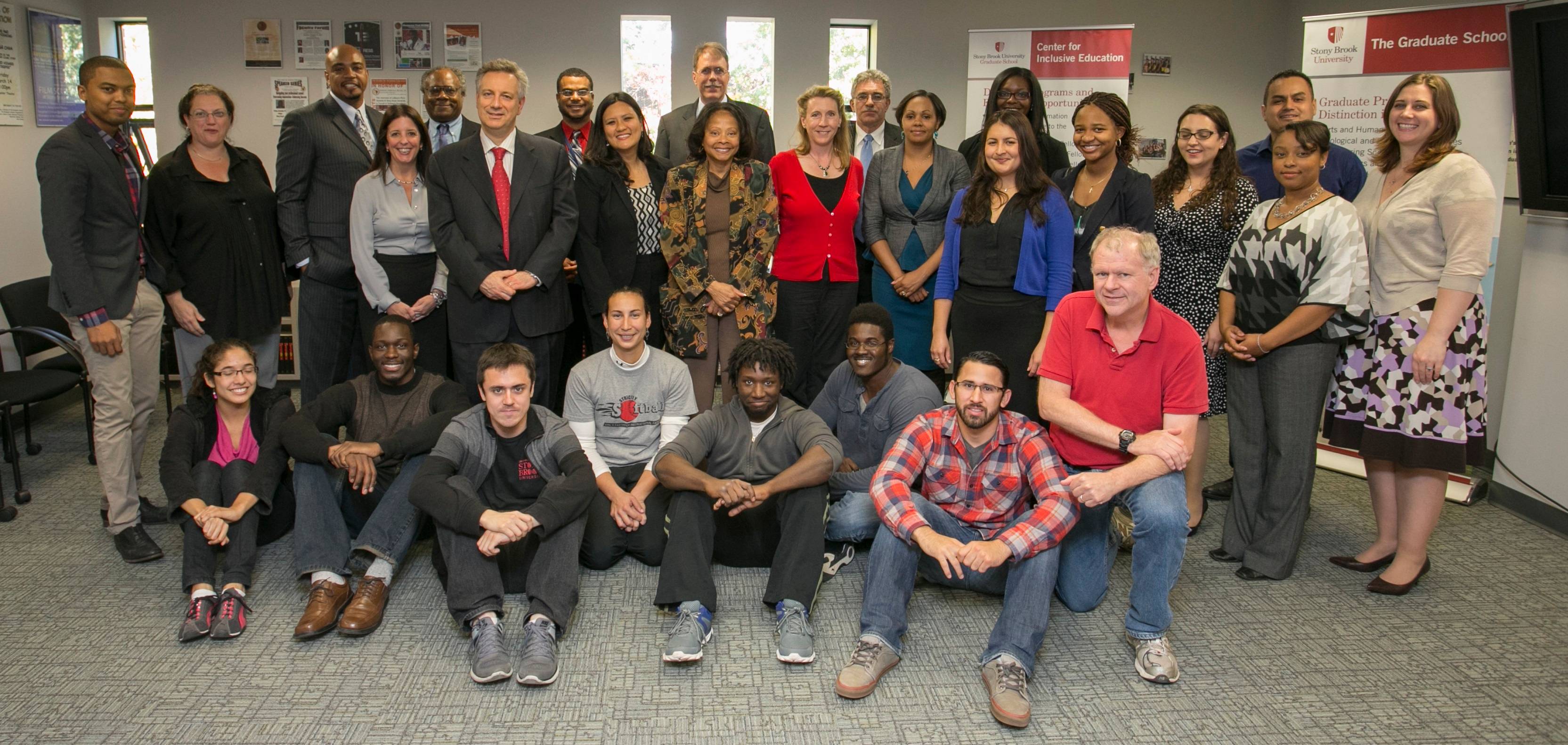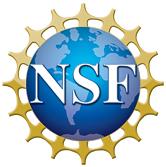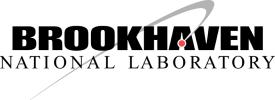The Stony Brook-Brookhaven AGEP FRAME Alliance for Transformation
The Stony Brook-Brookhaven AGEP Frontiers of Research and Academic Models of Excellence (FRAME) Alliance for Transformation formed a partnership between a research intensive doctoral institution (Stony Brook University) and a national research laboratory (Brookhaven National Laboratory) with the goal of providing underrepresented minority, U.S. citizen, doctoral STEM PhD students and postdoctoral trainees with professional development interventions to develop skills essential for success in the competitive environment of the professoriate.

Key outcomes from the FRAME project include:
-
Doubling the number of underrepresented minority US citizens who are postdoctoral trainees at alliance institutions, from the current baseline of 10 to a total of 20. This was accomplished through a combination of increased recruitment efforts to identify underrepresented minority postdoctoral candidates alongside the provision of fellowship supplements to convert candidates into postdoctoral trainees.
-
Establishing a postdoctoral fellow training regimen for underrepresented minority US citizens that combines pedagogical and professional competencies. This formal training regimen was developed so participants would experience a structured training program with greater oversight to increase satisfaction and in turn, research productivity
-
Providing targeted support and intensive training for underrepresented minority STEM PhD participants to achieve a 100% graduation rate. This was accomplished through engaging PhD participants in a comprehensive set of professional development workshops aimed at increasing participant’s sense of STEM identity and Self-efficacy. PhD participants were also given the opportunity to compete for grants to develop new research collaborations and directions.
-
Discovering that graduate STEM scholars, particularly those from underrepresented groups, who perceived their department faculty, advisors, and peers to hold a fixed mindset report a lower sense of STEM identity and STEM self-efficacy.
Intellectual Merit
AGEP-T FRAME focused on both growing the number of URM PhD scholars produced in STEM, and on improving the quality of early career training and interaction opportunities that allowed URM graduate and postdoctoral scholars to succeed in the competitive professional environment of research intensive institutions. Highly productive, intellectually stimulating training environments, combined with professional development and career readiness activities, were developed and administered to ensure a competitive advantage for underrepresented minority STEM PhD scholars as they sought positions at research intensive institutions.
The AGEP-T FRAME social science research project tested whether, in the areas of STEM identity and self-efficacy, underrepresented minorities differ from non-underrepresented minority STEM graduate students. It also examined and whether participation in AGEP-T programmatic activities contributed to positive changes in those variables. The project found that underrepresented minority graduate and postdoctoral scholars showed lower levels of STEM identity and efficacy than their majority peers but that, as predicted, participation in AGEP-T activities led to significant increases in both general self-efficacy and STEM-specific self-efficacy. Furthermore, as AGEP-T scholars’ self-efficacy improved, STEM identity also improved. Increases in STEM self-efficacy were associated with lower expectations of dropping out of graduate school and slightly more publications.
Broader Impacts
FRAME built upon significant advances in underrepresented minority doctoral training with an expanded focus on the quality of degrees in terms of professional preparation to allow graduate students and postdoctoral trainees to compete and succeed in the professoriate. This graduate and postdoctoral preparation maximized professional outcomes in highly-competitive research environments. The program trained 11 underrepresented minority postdoctoral STEM researchers, 9 of whom have gone on to research-intensive careers in the academy, national laboratories, industry and public service. 10 of FRAME’s 22 PhD graduates have advanced onto research-intensive positions in the academy with 3 of these already holding tenure-track faculty positions. Only 1 of FRAME’s PhD graduates have transitioned into a career outside of scientific research. Through invited talks, research presentations, posters, publications and other dissemination efforts, findings from FRAME’s social science research project and developed interventions continue to be disseminated to institutional leadership, statewide stakeholders, and National audiences of interest.



